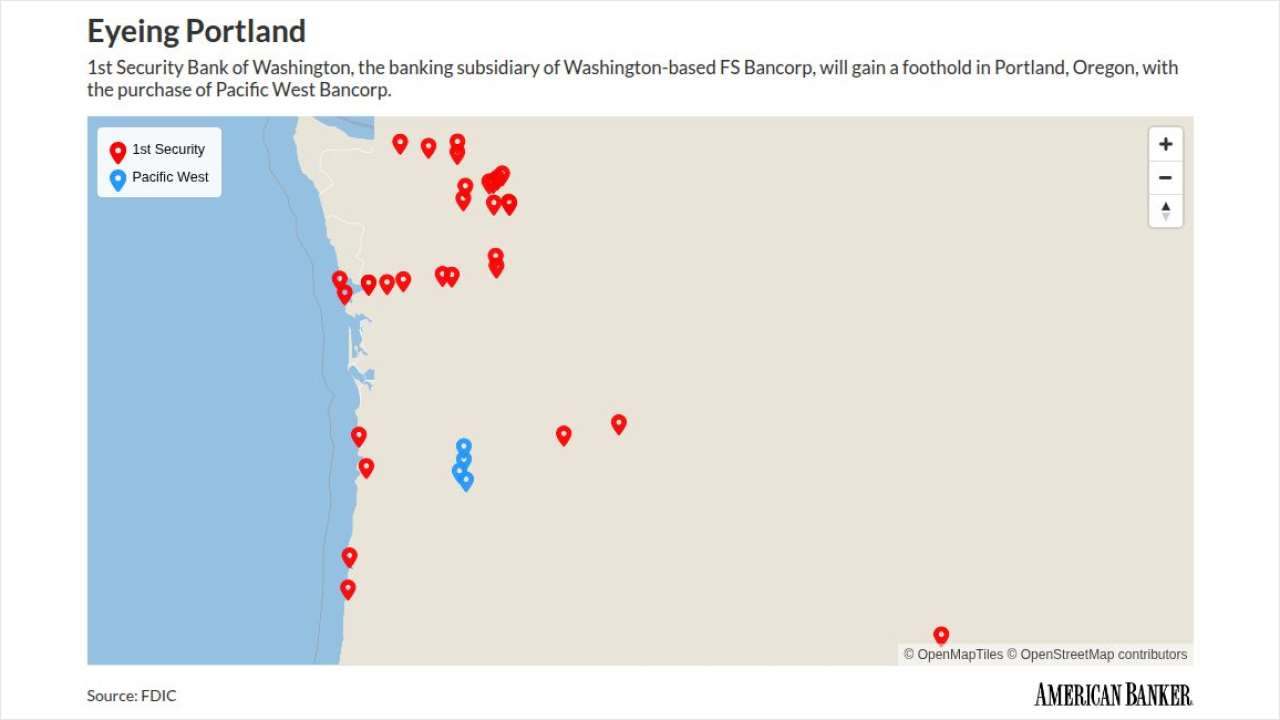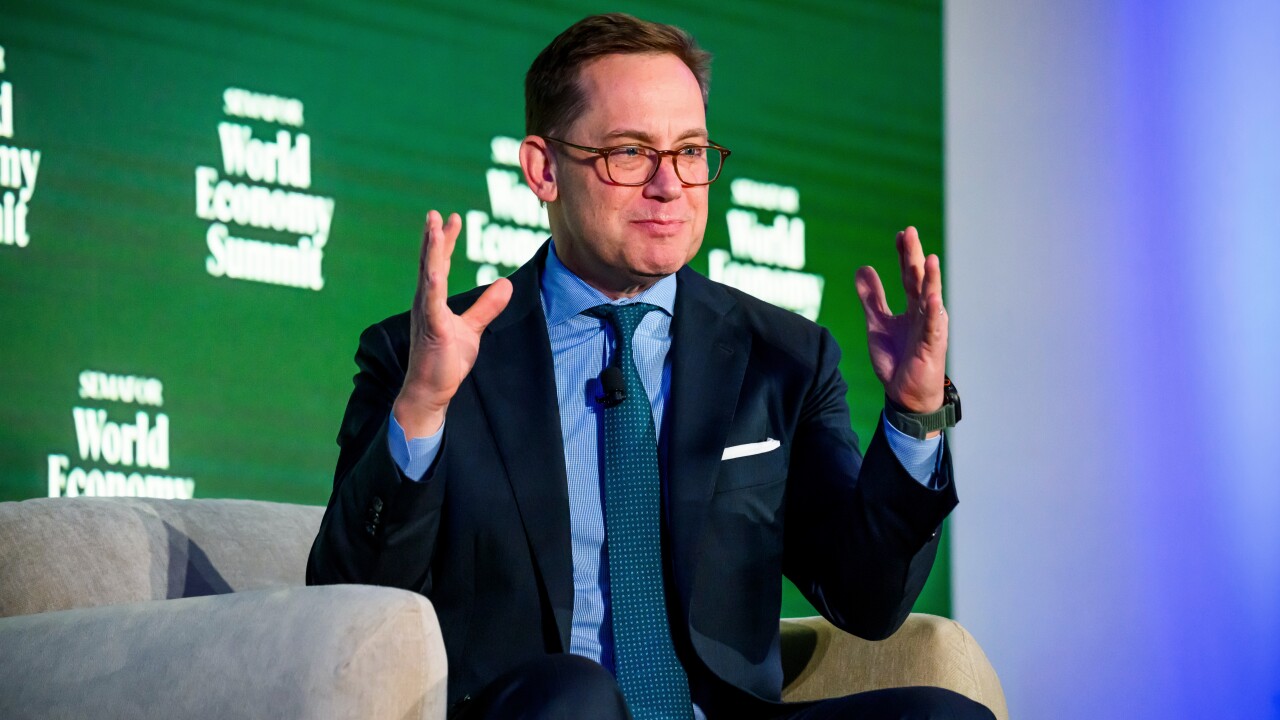
Dakota Asselyn, a supply chain specialist for Northrop Grumman, started using Yotta's savings app in September 2020, around the time influencer Graham Stephan was promoting it as an alternative to traditional savings.
"I found the saving to lottery incentive unique, and I followed Yotta's Instagram for weekly updates on winners," Asselyn said. "I felt secure knowing the account was FDIC insured."
But on May 10, he received an email from Yotta Technologies explaining it was going to stop paying rewards on savings balances, paycheck deposits and card spending. The email said he could start withdrawing his money through the app, but no more than $10,000 per day.
When Asselyn tried to withdraw the money, he couldn't take anything out. The funds had been frozen due to
Asselyn went through the reconciliation process Evolve Bank recently set up for customers of Yotta and other fintechs that worked with Synapse. For his Yotta balance of $41,543.80, he received $1.49.
Asselyn is one of thousands of fintech customers who have lost large sums of money, in some cases their entire life savings, in the wake of Synapse's bankruptcy in April. Synapse bankruptcy trustee Jelena McWilliams has said there is a $65 million to $95 million estimated difference between what Synapse says end users are owed and what the banks collectively think is owed.
New information from Evolve Bank and a fresh lawsuit filed against Synapse's four partner banks shed some new light on what happened. Where exactly that money is and whether these customers
Update from Evolve
Memphis-based Evolve Bank was Synapse's largest bank partner. It worked with several Synapse fintechs including Yotta, Juno and Yield Street. In a letter to customers of these affected fintechs last week, Evolve said it moved most of its customers' account balances — more than $300 million — to three Synapse Brokerage partner banks more than a year ago, in the course of severing its relationship with Synapse. (Synapse Brokerage swept customers' money overnight into partner banks to get deposit insurance.)
Specifically, according to Evolve, on Oct. 11, 2023, Synapse directed Evolve to send all funds belonging to Yotta end users — about $182 million — to another Synapse Brokerage ecosystem bank, the letter said. On Oct. 17, 2023, Synapse directed Evolve to send all funds belonging to Juno end users — about $43 million — to another bank. On Nov. 1, 2023, a Synapse Brokerage ecosystem bank originated ACH transactions transferring more than $90 million in Yield Street end-user funds from Evolve to another Synapse Brokerage ecosystem bank, according to the letter.
Those three Synapse Brokerage partner banks — Lineage Bank, AMG National Trust and American Bank — did not respond to requests for comment.
Since these balance transfers occurred, Evolve Bank has still been processing some transactions, such as auto loan auto payments, for some fintechs. It has been distributing the balances from those transactions in the reconciliation process it set up in early November.
Evolve hired a third-party auditor, Ankura Consulting, to reconstruct end users' balances at Evolve using transaction data from the Federal Reserve System, the bank's own records and the Synapse MongoDB database, the bank said in a statement.
"We know that the founder of the now-bankrupt Synapse has alleged Evolve still has funds, which would conveniently solve the problem of his inaccurate ledgers," Evolve's statement said. "But the reality, as Ankura's analysis revealed, is that this is simply not true. Synapse directed the money be moved away from Evolve to other ecosystem banks in October and November 2023, and the founder of Synapse was aware these transfers took place."
Evolve said it expects to work with Ankura and the other Synapse partner banks to determine where end-user funds are being held. Once Evolve receives transaction data from the other banks, it will have Ankura conduct an ecosystem-wide reconciliation to accurately determine where the money is so that the right amounts can be returned to the right end users, it said.
But for this to work properly, "the bank has to have accurate records of who the beneficial owners are," said Todd Baker, a senior fellow at the Richman Center for Business, Law & Public Policy at Columbia University and the managing principal of Broadmoor Consulting.
All four banks have been returning some money to customers, according to the latest Synapse bankruptcy update report from trustee Jelena McWilliams.
"To date, the diligent reconciliation work of the Partner Banks has enabled the return of over $187 million in end user funds, which is 85% of the total $219 million funds reported to be held for end users as of May 2024," McWilliams wrote. "Nonetheless, the Trustee remains acutely aware of the impacts suffered by end users experiencing delayed, partial or no access to their funds."
In a joint statement Nov. 12, Lineage Bank and AMG Bank said they have returned most of Synapse end users' money to them.
AMG said it began paying out end-user balances on Synapse's instructions on May 24 and it has paid out more than $109 million to 91,000 end users. Lineage said it has paid out more than $55 million, more than 90% of the funds it held for payment when Synapse ceased operations. Both banks say no end user has notified them of an incorrect amount paid.
New lawsuit blames the four banks
A class-action lawsuit filed by several fintech customers on Nov. 22 against all four Synapse partner banks (Evolve, Lineage, AMG and American) accuses the banks of fraud, negligence and failing to adequately maintain and safeguard customer funds.
"Significant ledger irregularities were discovered by the Partner Banks indicating the account balances set forth in Synapse's account ledger were materially inaccurate and, therefore, could not be used as the basis for distributing funds to end users," the complaint stated. "As a result, many customers' funds were either lost, stolen, or misplaced, with one Partner Bank blaming the next. Thousands of customers are left stranded without access to their funds. And despite demanding the return of their funds, the Partner Banks refused."
The banks' lack of direct access to Synapse's ledger, lack of contingency planning and failure to maintain their own copy of the ledger all contributed to their respective failures to fulfill the most fundamental responsibility in banking: to keep track of the money, the complaint said.
An Evolve spokesman said, "We are glad that Evolve was not singled out for this action."
"Now that Ankura has completed their analysis and reconciliation, we have again offered to coordinate with other banks to share transaction data, enabling them to reconstruct end-user balances using reliable information — not the flawed Synapse data — and accurately return funds to end users. We hope they will join us in these efforts to determine where end users' funds are and get them back to end users," he said.
The other three partner banks did not respond to a request for comment.
At the heart of this debacle is the fact that the fintechs, Synapse and partner banks did not have a reliable shared ledger that served as one source of truth.
"It is our understanding that the partner banks could access a portal that provided snapshots of how much each end user was owed, but not which partner bank held those funds," an Oct. 3 Troutman Pepper report stated. "None of the partner banks maintained a copy of Synapse's account ledger. As a result, the partner banks and fintechs were all reliant on Synapse to determine how much each customer was owed at all times."
A proposed FDIC recordkeeping rule for custody accounts would require banks to reconcile fintech accounts at the close of each business day.
"One of the big issues here is Synapse was basically moving around money between the various banks and saying, don't worry, we know who it belongs to," Broadmoor Consulting's Baker said.
Yotta's side of the story
Yotta has been hit hard by this mess. An estimated 67,000 Yotta customers have a minimum of $25 tied up in the Synapse bankruptcy aftermath. Some customers have received some money back from the partner banks, but many say they are receiving a fraction of what they are owed.
Yotta doesn't dispute that Evolve Bank transferred end-user funds to the three other Synapse partner banks in fall 2023. But Yotta, Synapse and others involved said Evolve had a shortfall before it moved this money over that it didn't disclose, and that is the hole the missing money — the $65 million to $95 million discrepancy Jelena McWilliams has identified — fell into.
One way this happened, according to the complaint, was through debits Evolve made in "for benefit of" accounts held by Synapse, for things like charge-backs and account analysis fees.
"Over the summer, we got access to the underlying Evolve bank statements that Evolve used for the Synapse program and found nearly $30 million in charges to customer FBO accounts for various fees that should not have come from customer accounts," a Yotta spokesman said. "We are also concerned about Evolve's recent executive departures, including their chief marketing and communications officer, who cited his 'integrity' as a reason for leaving."
Yotta further said in its lawsuit that according to Synapse's records, Evolve and Synapse gave $50 million in customer funds to another fintech company, Mercury, while migrating the company from Synapse's software to Evolve's software. Some of this money belonged to Yotta customers, the lawsuit said.
Mercury says this is not so. "Mercury did not over-migrate any funds during this transition, and we have consistently maintained that position," a company spokesman said.
According to Yotta's complaint, Evolve and Synapse were aware of this missing money by at least September 2023 but never told Yotta or its customers that their money was missing.
An Evolve spokesman declined to respond to these allegations, saying "we cannot comment on active litigation."
In a statement on Evolve's website, it said its investigation of ledgers that Synapse provided to the bank turned up material irregularities and inconsistencies in Synapse Brokerage program balances. "In multiple instances, the ledgers provided by Synapse show significant differences in Synapse Brokerage end user balances from one day to the next, without corresponding movement of funds. Some of these irregularities impact millions of dollars of end user funds, without explanation."
Will customers get all their money back?
"At the end of the day, there are customers who say they don't have money," Baker said. "And those customers are not lying. It went somewhere."
Asselyn thinks that in a few years he will get some money back as a result of class action lawsuits. "But I don't believe I'll ever get back my original amount," he said.
No one has publicly said all customers will be made whole. But on top of the lawsuits being filed, pressure from Washington may push the banks to pay out the missing funds.
In July, Democratic Sens. Sherrod Brown of Ohio, Ron Wyden of Oregon, Tammy Baldwin of Wisconsin and John Fetterman of Pennsylvania urged Synapse, its investors and its bank and fintech partners to restore customers' access to their money.
"As those that made the current situation possible, you must accept the tremendous responsibility that comes with handling consumers' money," the senators wrote. "Under the current circumstances that have left customers without access to their funds for over a month, that means making customers whole — immediately. We expect you to take all necessary steps to make available all customer deposits currently frozen by the Synapse bankruptcy."






